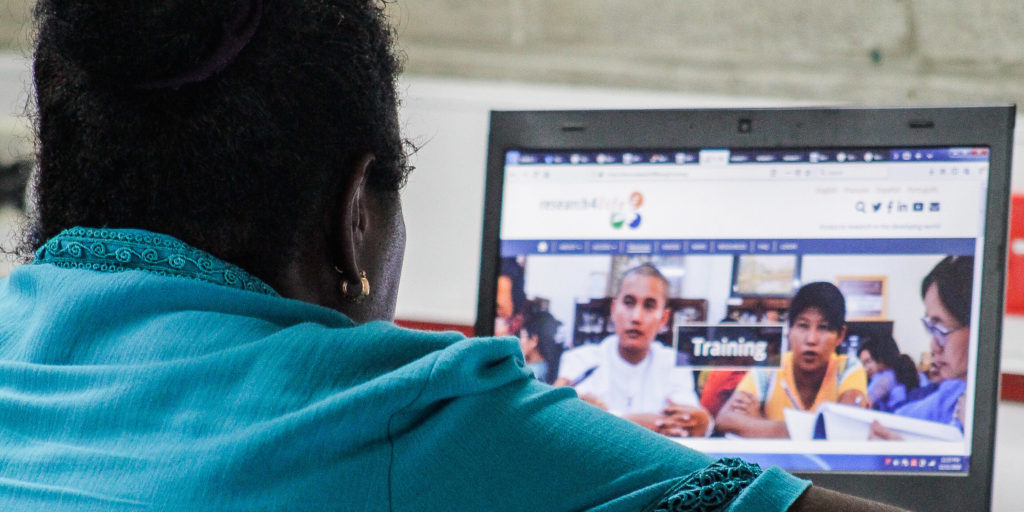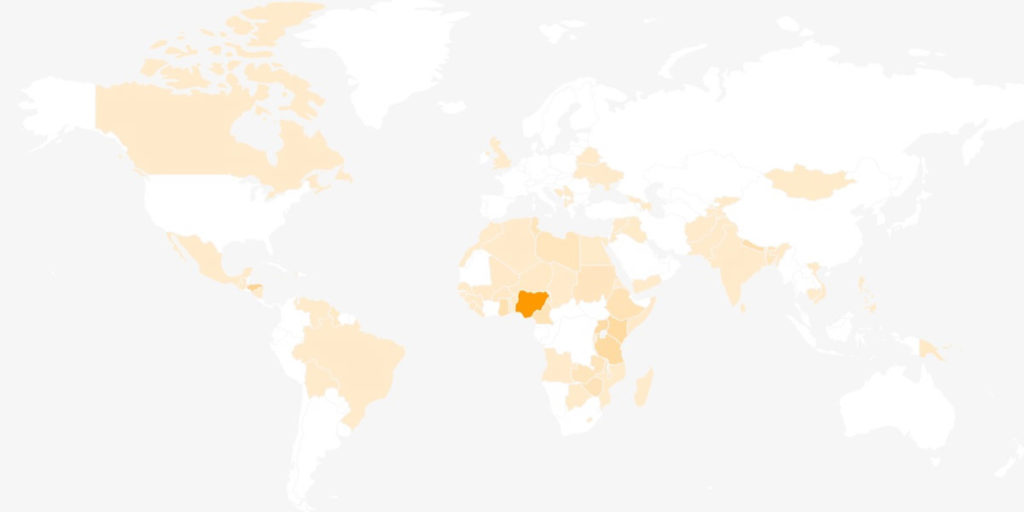First Research4Life MOOC: “I now have a clearer concept of the hidden world of academia”

In the fall of 2019, 2,207 people from 95 countries joined the first Research4Life Massive Open Online Course (MOOC). The goal of the course was to equip current and potential Research4Life users with the knowledge and skills required to use the platform effectively. A new course is planned for 2020.
The MOOC was funded by two Research4Life partners: the Food and Agricultural Organization (FAO) and Elsevier. Case studies and examples from all the five Research4Life programmes – AGORA, Hinari, OARE, GOALI and ARDI – were included.
The modular structure of the MOOC allows participants to study their area of interest throughout a five-week period. Topics included the scholarly communication landscape, information literacy skills, advocacy and capacity development strategies. Many participants shared insight and success stories from their experiences:
“The course was an eye-opener to me. I used to hear my colleagues mention words like Bibliometrics, Scopus, Dimensions, ClinicalKey. I would wonder which world they were coming from. I now have a clearer concept of this hidden world of academia.”
Reuben Waswa Nabie, Kenya
“This was my first online course and I enjoyed learning about the Research4Life portals. This course gave me the opportunity to learn about the other portals next to Hinari, so I decided to do the quizzes and exams for all of them. I have learned a lot and am very glad that I registered.”
Dillie George, Papua New Guinea

Impact
During the course, 27 institutions registered for access to Research4Life, from participating countries, including Benin, Bhutan, Cameroon, Guinea, Kenya, Liberia, Libya, Nepal, Niger, Nigeria, Rwanda, Uganda and Tanzania. This indicated that the MOOC effectively led to a more widespread awareness of the Research4Life platform.
The feedback from participants and team members will help to build even better courses in the future. Overall, the successful pilot paves the way for more online courses, which will be complemented to train-the-trainer programs that strengthen local impact by building on initial experience.
More information about the next MOOC will be available soon. Follow us on Facebook, Twitter or DGroups, or sign up for our newsletter to stay in the loop.





